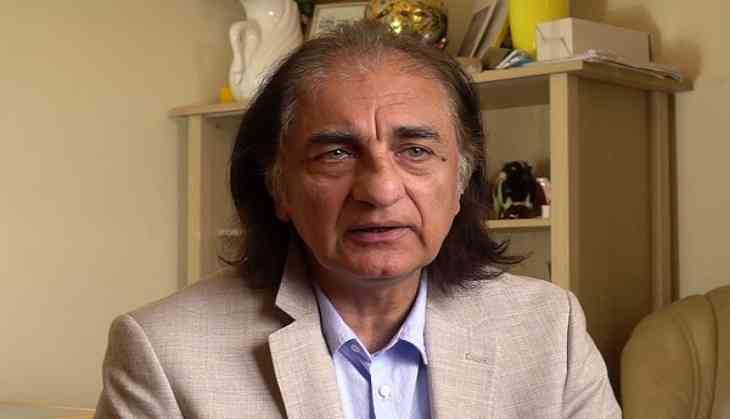War and Peace: Ceasefire at the LoC

After four days of deliberation during the Financial Action Task Force (FATF) meeting held virtually in the French capital of Paris a decision regarding Pakistan's status was taken.
Pakistan has to remain in the Greylist until it complies with all the 27 points that it has been asked to meet as a criterion to be moved into the white list.
Due to being on the Greylist since 2008 Pakistan has endured a total loss of USD 38 billion of its GDP. For a cash-starved country, this is a major setback that Pakistan must not take lightly.
Perhaps with this in mind Pakistan has decided to calm down its antagonism against its neighbour, hence, DG Military Operations Pakistan held a meeting with his Indian counterpart the same day that the FATF verdict was readout.
Pakistan has finally agreed to a ceasefire at the Line of Control (LoC) and revive the 2003 ceasefire status with India. This is a good sign that must be appreciated especially when the Pakistan army had to swallow its pride by admitting its role in cross border firing.
One must not forget that India has never attacked any neighbouring state or nation neither has it ever send terrorists to create havoc abroad, something that we Indians have had to deal with since 1990 when a new wave of terrorism raised its head leading to the genocide and mass exodus of the indigenous Kashmiri Hindu pundits.
Terrorist attacks on civilians and our security forces came to an abrupt halt when on August 5, 2019, the Modi Sarkar abrogated Articles 370 and 35A that barred Indian laws from taking effect in the state of Jammu and Kashmir.
In order to bring some sense into the stubborn antagonist approach against India by the Pakistani top military brass, Ajit Doval, the Indian National Security Advisor to Prime Minister Narendra Modi has consistently been advocating for peaceful negotiations between India and Pakistan to solve the bilateral issue of Jammu Kashmir.
It is Doval's unrelenting pursuit for defeating terrorism in the Valley that brought peace to the Valley in the first place. Ensuring minimum loss of life, he has attempted at deciphering the psychological mindset of a Kashmiri militant, offering them a safe return back into the civil society if they voluntarily give up terrorism while at the same time Doval has been successfully busting terrorist sleeper cells and beating infiltration attempts made by Pakistan.
Now the next step would be to swiftly translate the ceasefire arrangement of February 25 into bilateral talks and make serious-minded efforts to resolve the long-standing territorial dispute between India and Pakistan.
Pakistan must realise that Indian people are no enemy of the people of Pakistan. Indian citizens feel empathy towards the plight of their neighbours living without adequate means and deprived of power and electricity and shortages of food. India wants to help Pakistanis live a better life.
Pakistan must realise that China is the real enemy of its people. Chinese capitalism of the 1980s has now transformed into an imperialist expansionist dragon and Pakistan sits right in its mouth waiting to be swallowed at an instance.
China has been claiming that Pakistan is its friend but the fact of the matter is that China has been using Pakistan's geographical location to challenge India and to gain excess to the Indian Ocean. China has cunningly set CPEC as bait to enslave Pakistan and it took the bait. China is now artfully applying debt entrapment policy to enslave Pakistan further.
According to the State Bank of Pakistan data, released in 2020, Pakistan's total debt to China has risen from USD 7.2 billion in 2017 to a whopping USD 30 billion in 2020. And it would take Pakistan more than 50 years to pay back that debt and even that is not guaranteed since Pakistan's downward economic spiral is showing no signs of ascending any time soon. This means that Pakistan will have to borrow even more from China.
Hassan Abbas, an American academician of Pakistani origin has warned that the accumulated cost of constructing five hydropower projects which China is financing in Pakistan is expected to escalate to USD 98 billion and the accumulated interest of these projects is almost USD 5 billion a year!
Abbas has made his calculations and has revealed that in the next 20 years Pakistan will have to pay China USD 200. I doubt if Pakistan will ever be able to free itself from the debt trap that China has woven around its fragile economic structure.
It is time for Pakistan to realise that China and not India is its real enemy. Narendra Modi and not Xi Jinping is its well-wisher. We can make February 25 go down in the history as the day when Pakistan finally woke up to the reality of the Road and Belt Initiative and its CPEC bait and quickly resolves the border and territorial disputes with all its neighbours.
However, if this extension of the hand of peace toward India by the Pakistan military proves to be nothing more than a desperate strategic manoeuvre to gain time to crush the insurgency in Baluchistan and the Pashtun Tahafuz Movement, then Pakistan will be making a fatal mistake. It will only end up hastening the disintegration of the state of Pakistan and it will also lose a golden opportunity to let India save it.
By accepting Pakistan's hand of peace India has once again extended her helping hand akin to a lifeboat of hope that could finally sail Pakistan toward peace and away from war.
(ANI)

